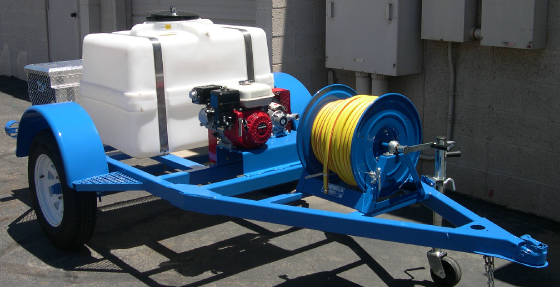More Spray Equipment Purchasing Errors to Avoid
Posted by Andrew Greess on Dec 9, 2014
Not getting enough input on the requirements Too many managers think they know everything about spray equipment and tell vendors what they want instead of asking for advice. Don’t assume you know everything. Get advice about designing the equipment from employees and colleagues. When you go to an industry class or conference, walk through the parking lot, and look at competitor’s equipment. Develop a relationship with your spray equipment vendor, and spend the time explaining your company’s spray objectives. Another common problem is when a company buys a truck assuming the equipment will fit. Equipment does not always fit as desired, so ask for help early and often.
To design the best sprayer, it’s important to take the time to get input from everyone involved.
Here’s a partial list of stakeholders and questions to ask:
*Spray technicians
- What do you like and dislike about the equipment?
- What would you change?
- What would you like to see in the equipment?
*Management
- Will the size or type of spray projects change?
- Will the products (chemicals) change?
- What vehicle(s) will the equipment go in?
- Will one tech or multiple techs be using the equipment?
*Maintenance department
- What do you like and dislike about the equipment?
- What would you change?
- Are there any components or design problems that are problematic?

*Purchasing department
- Will this work be multiple bid or directed to a specific vendor under contract?
- Can we include the first year’s maintenance parts in the purchase?
- What would you like to see in the equipment?
*Spray equipment vendor (if not a multiple bid situation)
- What recommendations do you have based upon our application?
- Here are some problems we have with our equipment. How can you help us?
- Are spare parts readily available?
- What maintenance is likely to be required during the first year?
- Will this sprayer be easy for our users to operate?
- Will you come and train our users?
Bad or incomplete specifications
When the department doesn’t take the time to write clear, detailed specifications for the new sprayer, then what you get might not be what you want or need. Here are examples:
A municipality ordered a 300-gallon spray trailer with a 20-foot boom to control weeds in large fields. It stated that, aside from occasional weed spot spraying with the hose, this was the only application for this sprayer. A couple months later, they complained the sprayer wasn’t working. When we went to see what was wrong, one tech was trying to spray 40-foot-tall trees, something the sprayer wasn’t designed to do. They had us switch the pump, which was a significant expense.
Another government agency bid for three 200-gallon spray trailers and accepted the low bid. After three months, the pumps failed and were replaced numerous times before the agency called and asked us to take a look. The specification stated roller pump but didn’t specify a model number. The vendor used the lowest grade pump, which couldn’t tolerate herbicides. The same spray trailers used low-cost, low-quality plastic fittings in key places (see photo). A plastic fitting in the wrong place can fail, resulting in a chemical spill and lost productivity.
Be sure you know everything you’re getting when ordering a sprayer. If you’re going out to bid, specify all components, not just the big ones. Sprayer specs must be detailed.
Qspray is your trusted resource for professional pest control and landscape equipment, parts and supplies. Learn more about Qspray today.
